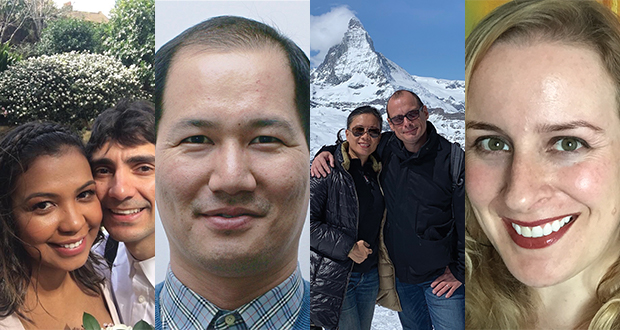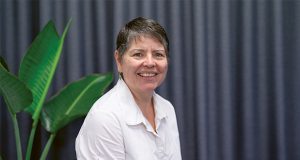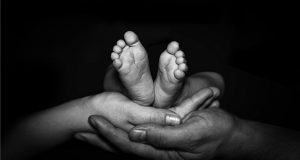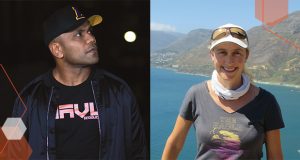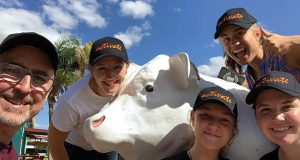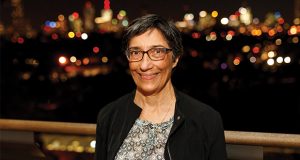What does it mean to be One Church? Four Queensland Uniting Church members share inspirational stories of how multicultural church enriches our faith, our worship and our fellowship.
Language that speaks to the heart
My name is Carla Cristine Diniz and I am from Brazil, a country where people worship deeply.
I grew up in church and I was always part of small groups where it was easy to find Jesus’ love in people.
In Australia I loved the worship songs and the way people praised the Lord, however for a period I was missing receiving the word of God in my own language.
After a few years living in Brisbane, I found Bulimba Uniting Church which has Brazilian services every Saturday. This space for our community brought joy and a new start to my life.
My husband never engaged with church before and now he can identify himself in Jesus through our culture and identity. I feel this community is a gift from God to my family.
Being able to listen to the word of God in our own language is the best privilege we have, my family feels loved and blessed.
The worship team is the best part for me as a member. We are working together to offer our best to God and every week we are building a bigger family in church, sharing the love, compassion and caring for each other.
Now I feel that church is my second home, because there I meet with my family members and I can be myself in Jesus.
Together, we shed a brighter light
My name is Reverend David Dong Won Kim. I grew up in South Korea and moved to Australia in 1996. I began my ministry as a student pastor in 1989. Since then, I have served various churches and organisations in Korea, North America, China and Australia.
I joined the Uniting Church in Australia in 2006 and was accepted as a Minister of the Word in 2009, and now I am ministering at Morningside Uniting Church, Brisbane.
Since Morningside Uniting Church has many members with different backgrounds in culture and language, and rich stories of how they became Christians in their home country, we have designated an annual mission awareness and celebration Sunday service in August and a Multicultural Sunday service in October. For these special services we invite local mission organisations such as Wesley Mission Queensland and chaplaincy teams, and design a combined service with a local Korean church.
Church members are encouraged to wear their traditional costumes, bring their own traditional dishes to share and to share stories with the congregation.
Besides special services, the worship committee prepares different hymns from different traditions and countries on each Sunday in order for us, as the living one body of Christ, to celebrate who we are in many cultures and languages and who we are together in Christ.
Being a multicultural church means that the manifestation/presence/revelation of God does not depend on who we are, but on who God is. In other words, God has brought all of us together in worship, witness and service.
As more different coloured lights get added on and on, the brighter they become—multicultural churches share the brighter and clearer presence of God in our worship, service and witness to the glory of God.
One church: it starts with respect
My name is Yanhua Yu and most of my friends know me as Louisa. I am Chinese and migrated from Hong Kong to Brisbane with my English husband in 2007. I work as a chaplain for Wesley Mission Queensland and regularly take the Sunday morning service in the chapel at Sinnamon Village Aged Care Centre. On Sunday afternoons you will find us at Newlife Brisbane in Albert Street Uniting Church.
My husband and I were lay leaders in the Hong Kong Methodist International Church so when we moved to Brisbane the Uniting Church became the obvious fit.
Being a migrant helps me to connect with many people here who are not born in Australia, and being a Chinese Christian gave me an advantage to relate to Indigenous people when I did outback and rural missions because the Aboriginal people were intrigued and asked many questions without me initiating the conversations.
I believe being a multicultural church means acknowledging and respecting other cultures and traditions. It’s about learning and understanding our cultural sensitivities, loving and caring for each other despite our differences. For me, it is about congregations which embrace all cultures, where people from every nation, tribe and language can worship God together and love one another.
However, I understand the value of having monocultural or different ethnic congregations, especially when language barriers hinder people’s understanding of the truth and authentic expressions of worship.
I think growing up as a Chinese in a British colony has prepared me to embrace diversity in culture, languages and worship styles in different church communities. I love chatting with the residents in the aged care centre. They have so much knowledge and wisdom to impart. I have learnt so much from them.
Unity flourishes when power is put aside
My name is Kemeri Liévano. I am a proud Australian, born and raised in Adelaide from a family whose history in this country traces back to some of the first free settlers in Victoria.
I am also very proud that I’ve had many diverse influences in my life. As a child, my mother read to me in Italian, shared exciting stories of her years living in Europe and sent me to German school each Saturday.
My Dad’s Mum attended Aboriginal metro-mob church with services in English and our church’s ministry partnership with this church helped shape much of my understanding of First Peoples’ ministry in the suburbs.
We usually ate Italian food at home, we made gnocchi and pasta sauce by hand and mainstream Australian potluck was Sunday fare at my Nan’s. My Nan’s street was my neighbourhood heartland, with all our Greek and Italian nonnas who passed us fruit and pasta over the fence and looked out for my Nan. It was here that I most keenly felt part of an intercultural community.
My Nan taught me God’s house was for everyone, that God’s house was “a house of prayer for all the nations” (Isaiah 56:7).
I believe that a truly intercultural church is one where we all learn from, care for and minister to each other, each with our varied and beautiful gifts. Naturally language and culture lead us to celebrate often in our own distinct ways, but where power is put aside, relationship flourishes and so does unity in the Spirit.
As a pastor and linguist, my ministry in aged care chaplaincy with Blue Care Gold Coast Cluster introduces me to migrants and Aboriginal Australians who have not always been supported in their acculturation and ownership of their unique cultural identities, and provides lovely opportunities for affirming God’s gift of culture and language as a lens for the gospel and for church life.
My family is a multicultural, multilingual family trying to raise six kids speaking Spanish as well as English, belonging to a beautiful mainstream local church (St Mark’s in Mt Gravatt, Brisbane) and regularly attending Portuguese language services.
To learn more about the Queensland Synod Multi-Cross Cultural Reference Group, email multicultural@southmoreton.org.au
 JourneyOnline
JourneyOnline
